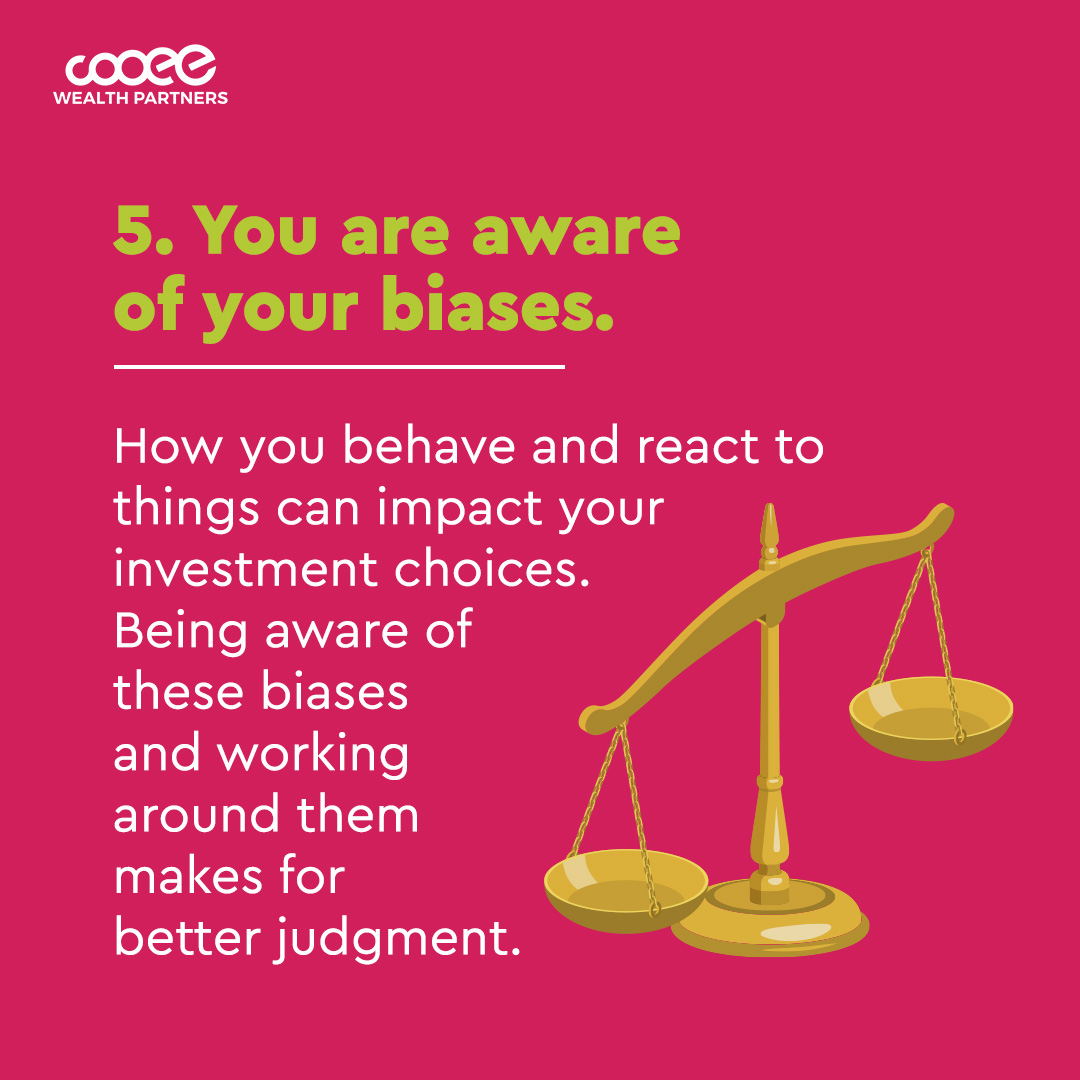
We’ve all got at least one of those friends right? Bought a couple of properties, and suddenly they’re a real estate expert. Had some good trades on the stock market and they’re the next Wolf of Wall Street.
Sometimes it’s easy to feel a touch intimidated because it feels like people know more about it than you do. But just because someone is making lots of investments (or at least making a lot of noise about their investments) doesn’t necessarily mean they’re the right investments.
There’s investing, and then there’s smart investing.
So just because that cousin that you catch up with once a year has splashed a heap of cash on some investments, it doesn’t mean they’re making smart decisions. And if you’re not making smart investments, you’re not going to reach your financial goals.
Now don’t get us wrong, there will be some hiccups along the way. It’s normal to make a few mistakes throughout your financial journey, but as long as you’re learning, you’re growing as an investor.
So how do you know if you’re truly reaching your true potential and making the right investment choices? Read on.
5 qualities and skills of a good investor
Like anything, investment skills are learned.
Sure some personality traits probably make some people a little more predisposed to making certain kinds of choices, but, for the most part, there are a few qualities that define a good investor. And don’t worry, these are skills that you can develop over time.
You are patient
You are determined
You have well-defined goals
- Specific
- Measurable
- Achievable
- Relevant
- Time-Bound
You have a clear strategy
You are aware of your biases
- Mental accounting: Whereby you treat money differently depending on where it came from. Establish a plan for what you will do with any extra cash that may come your way so you’re less inclined to splurge and more inclined to build on investments.
- Loss aversion bias: This is a big one because it means you’re so scared of losing that you tend not to seek out opportunities to gain. Once you’ve got a plan in place, you’re less likely to give in to emotion.
- Overconfidence bias: This one seems a little self-explanatory but you think you’re better than what you are, and this can be a big issue when it comes to mitigating risk in investments. If you’re a beginner, please seek professional advice to help hone your ideas around investing.
- Anchoring bias: You base your entire judgment process around an initial piece of information you’ve heard about something. Investments are almost always highly complex, multi-faceted things. Make sure you do your research (in multiple places) before you make any decisions.
- Herd behaviour bias: This is like the story about all the little lemmings jumping off the cliff. Don’t go and invest just because all your mates are doing it. It barely ever ends well.
Patience is a virtue, especially when it comes to investing. It can be a tricky quality to develop, however, as short-term results are the shiny thing on the immediate horizon. When it comes to investments, you need to be prepared to play the long game.
We get it, it can be tricky to not make snap emotional decisions when it comes to money. But, we’ve said it before and we’ll say it again, you need goals, you need a plan to get to those goals, and you need to be prepared to stick to the plan. By fostering patience in your investment style you can get some far more favourable long-term results, while also potentially minimising any losses.
If you’re not a patient person by nature, don’t worry, this is a skill that can be learned and applied to your investments. It’s all about reframing your thought process. Think less immediate gratification and more long-term gain.
Once you’ve got your investment goals and plan in place, you need to remind yourself that there will always be volatility in the market. It’s how you weather this volatility that directly impacts your portfolio.
You also need to consider things like what’s affecting the market – is it investor fear or is it an actual negative fundamental?
Your determination can be the pivotal make-or-break point for your success as an investor.
By this, we don’t just mean that you’re determined to set and stick to your goals, though this is an important factor.
It’s more than that. You also have to be determined enough to invest regularly, keep contributing, and keep finding new things that align with your goals. This is where financial growth lies.
Determination helps you push through the tough times and keep moving forward even when your investment journey becomes difficult.
The road to success in investing is paved with hardships and hard work — determination enables you to do what is required of you to become a successful investor.
Yes, we know, the “G” word again. But seriously, it’s important. We don’t care if we sound like a broken record, you simply cannot make good investment choices without solid goals to back them up.
So what makes good goals then?
The Balance has set out “SMART” parametres for what makes an investment goal good:
Put simply, there’s no point in making goals you can reasonably achieve or that aren’t aligned with what you want out of life.
By having reasonable, well-defined goals you’ll find that your decisions as an investor become well-guided and logical, regardless of changing market conditions. This ensures that you won’t be easily swayed by trending stocks or assets that may not even contribute to your overall investment portfolio.
Having goals is great, but how are you going to achieve them? This is where your investment strategy comes into play.
Investors without a strategy tend to jump from one shiny thing to the next, without staying committed through the lifecycle of their investments.
Financial planning is important for all ages, and having clearly defined investment strategies links to this sentiment. It mitigates risk and confusion.
Once you have a clear strategy, you know what you’re doing and you’re not just throwing money at things for the sake of it or because your friend from uni said it was a good idea.
Having strategies in place from a young age also allows for more opportunities to map out your future goals and allows you to review your options and decide which strategy can best help you achieve your plans depending on how things shift and change over time.
Being aware of your own behavioural biases might sound unrelated to investing but, trust us, it plays a bigger part than you might realise.
Business Insider has written a great article about different kinds of behavioural biases and how they can affect your investment decisions:

What are good financial habits that investors should build?

Like anything, these good traits and habits are not learned overnight, but it’s worth putting in the time and effort to try and foster them in yourself.
A recent study by Morgan Stanley found that those who practised what we would consider to be healthy financial habits were the ones who were happiest with their investments. Having a financial plan in place meant that they were less concerned about some of the other financial issues that life might throw at them.
Those who were happiest had financial plans in place, discussed their plans with their spouse or significant other, and were meeting their long and short-term goals.
There are several ways you can build good financial habits. You can start with:
- Writing down your financial goals
- Regularly checking your accounts
- Learning about money and investing from experts
Overall financial matters are never going to be completely stress-free but, by being clear in your goals, sticking to them, and getting the right advice, you can minimise the stressful aspect of investing.
Most importantly, getting coaching and guidance can help remove the emotion from the decision-making process and ensure that you’re focused on the logical element of investing.
If you’re not sure where to start or feel that it’s time to review your strategies and investments, book a meeting with one of our Wealth Planners.







